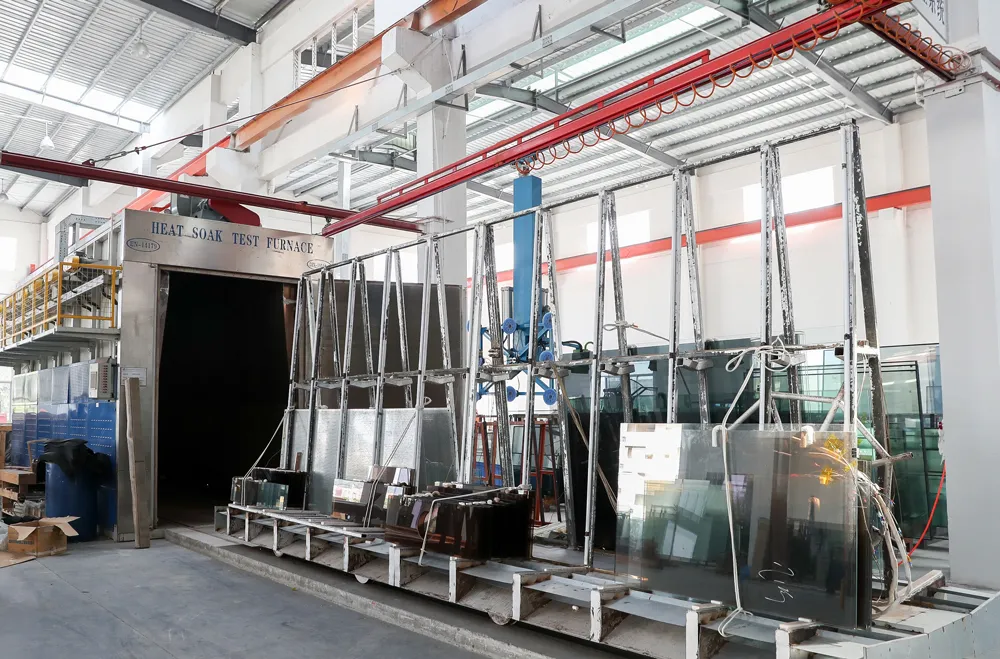Need some help?
We would love to help you with your project.
Heat-soaked glass, HST, is tempered glass that is heated to eliminate any glass that is subject to spontaneous breakage, before installation. The HST test identifies glass batches with a high incidence of nickel sulfide inclusions, a contaminant responsible for spontaneous breakage. This type of glass is suitable for difficult-to-access locations, high elevations, or spaces that require extra protection, such as structural glass building facades.
